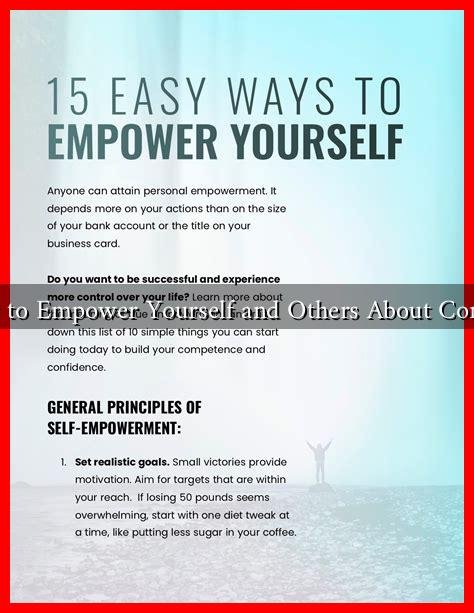-
Table of Contents
How to Empower Yourself and Others About Consent
Consent is a fundamental aspect of human interaction, particularly in intimate relationships. It is essential for ensuring that all parties involved feel safe, respected, and valued. However, discussions about consent are often fraught with misunderstanding and stigma. This article aims to empower individuals to understand and communicate consent effectively, both for themselves and others.
Understanding Consent: The Basics
Consent is defined as the agreement between participants to engage in a specific activity. It is not just a one-time agreement but a continuous process that can be revoked at any time. Here are some key principles of consent:
- Informed: All parties must have a clear understanding of what they are consenting to.
- Freely Given: Consent should be given without coercion, manipulation, or pressure.
- Reversible: Anyone can change their mind at any time, regardless of previous consent.
- Enthusiastic: Consent should be enthusiastic and not given out of obligation or fear.
- Specific: Consent for one activity does not imply consent for another.
The Importance of Empowering Yourself
Empowering yourself about consent begins with education and self-awareness. Here are some steps to take:
- Educate Yourself: Read books, attend workshops, or take online courses about consent. Resources like RAINN provide valuable information.
- Reflect on Your Values: Consider what consent means to you and how you want to communicate it in your relationships.
- Practice Communication: Engage in open discussions about consent with friends and partners. Use “I” statements to express your feelings and boundaries.
- Set Boundaries: Clearly define your personal boundaries and communicate them to others.
Empowering Others: Creating a Culture of Consent
Once you feel empowered about your own understanding of consent, you can help others do the same. Here are some strategies:
- Lead by Example: Model respectful behavior in your interactions. Show how to ask for and give consent in various situations.
- Engage in Conversations: Initiate discussions about consent in your social circles. Use real-life scenarios to illustrate the importance of consent.
- Support Educational Initiatives: Advocate for consent education in schools and community programs. Support organizations that focus on consent awareness.
- Challenge Misconceptions: Address myths and stereotypes about consent when you encounter them. Use facts and statistics to debunk harmful narratives.
Case Studies and Statistics
Understanding the impact of consent education can be illustrated through various studies and statistics:
- A study published in the Journal of Interpersonal Violence found that comprehensive consent education significantly reduced instances of sexual assault among college students.
- According to a survey by the National Center for Victims of Crime, 1 in 5 women and 1 in 16 men are sexually assaulted while in college, highlighting the urgent need for consent education.
Conclusion: The Path Forward
Empowering yourself and others about consent is not just a personal journey; it is a collective responsibility. By educating yourself, engaging in open conversations, and advocating for a culture of consent, you can contribute to a safer and more respectful society. Remember, consent is not just a legal requirement; it is a moral imperative that fosters trust and respect in all relationships. Together, we can create an environment where everyone feels empowered to express their boundaries and desires freely.

